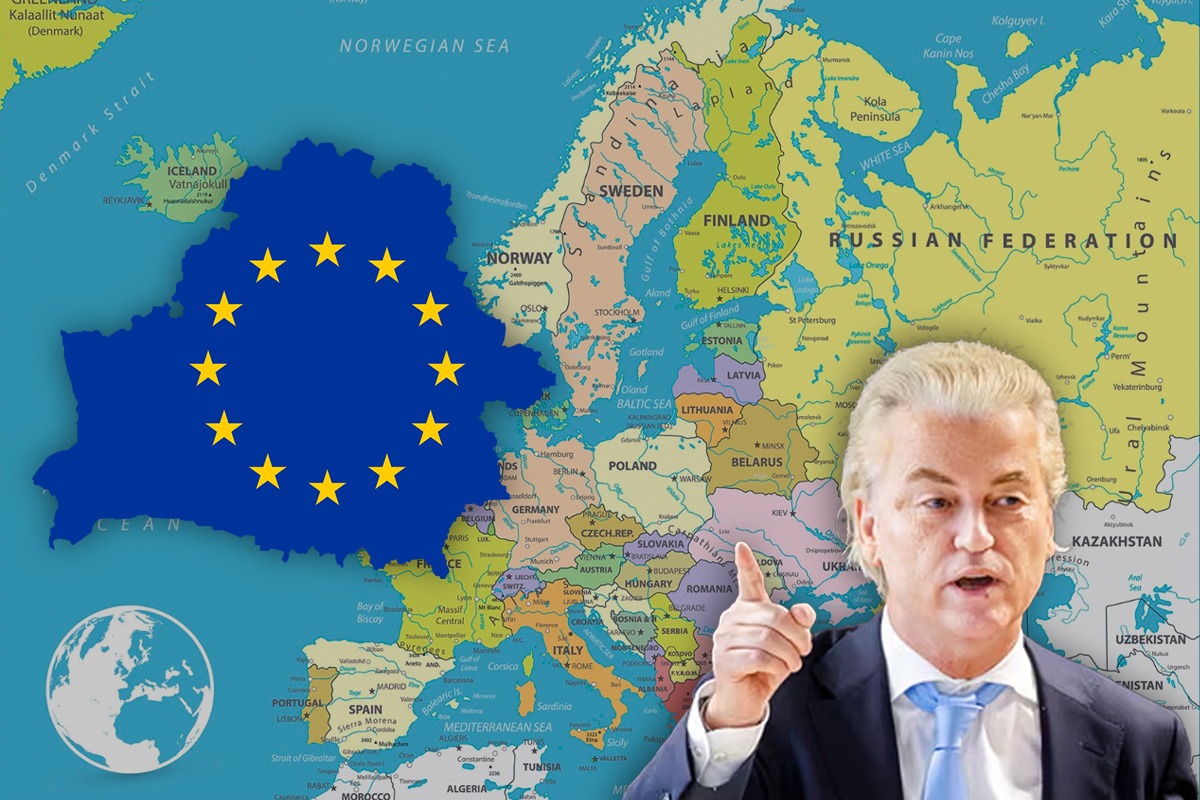Geert Wilders has pulled off a major upset – not among the people who voted for him and want him in their highest office – but among the mainstream media, the EU bureaucratic corridors, and the woke-globalist alliance.
The mainstream media, which has already dubbed him “Donald Trump of Europe” has taken a two-pronged approach towards the fact that Wilders might be an important part of the new Dutch government. A section is busy allaying the anxieties of the woke Europeans, trying to paint this act of Wilders winning 37 seats as a stray, insignificant incident. In expressing so, they draw well-deserved confidence from the long-sustained socio-political apparatus in place in the EU – one that is too strong to be fazed by this win. Their argument? The institutional bureaucracy is too well-oiled; a few right-wingers here and there are of no consequence.
The second section is busy creating hyper-anxious waves among opinion makers about how populist leaders like Wilders or Meloni would destroy democratic, and rule-of-law-driven Europe. They are not bothered about minor confusions created by pitching copybook democracy – which is how Geert Wilders won, against their version of democracy – whatever that is. According to them, this act of populist leaders winning elections needs to be shunned; this kind of democracy needs to be controlled to preserve their kind of democracy.
The EU has a practical issue now. Silencing lone individuals like Giorgia Meloni with different financial and economic packages could cease to be an option. An increase in conservative, nationalistic vote share might throw up more and more winners like Wilders, and there is always this chance of such winners ‘ganging up’ (that’s the phrase that corporate media uses) together and using their veto to upset the little cartel that they have been running under the globalists’ umbrella. Macron has already been instructed to up his anti-Islamic rhetoric to try and overshadow Marine Le Penn’s influence over the French voters. With AfD waiting in the wings in Germany, one wonders if Olaf Scholz would take a hint from Macron, or about the kind of fustian that he would use to impress the Germans.
Would Wilders be a part of the government coalition? Some analysts think that he could have equal, if not better control if he sits this one out like Nigel Farage in the UK. The key issue according to them is to use the scare of right-wing and the rising nationalist sentiments to keep the EU politician-bureaucrats in check.
But Wilders, who is probably more about jumping right where the action is, disagrees with this view. He took to announcing on X that he is going to give it his best shot at becoming the Prime Minister of the Netherlands. The voters that enabled this win of his are dissatisfied with the rise in living cost, inflation, energy crisis, and unemployment – all of which is a direct result of Ukraine; they are unhappy with the Islamic immigration and the fallouts of that as they are disgruntled about EU’s green energy drive and resultant impact on Dutch agriculture and allied industries.
To these voters, the EU is a den of lazy, opportunistic chair-grabbers who are happy to do US bidding at the expense of common Europeans. And Wilders’ tweet could be an indication that he considers addressing these issues more important than using his political clout as a stunt; after all Nigel Farage and all his bluster about conservative revolution has done nothing to stop England from inching towards a demographic catastrophe.
The woke-globalist alliance – both on and off the streets – are equally alarmed at this Wilders win. Viktor Orban, Petteri Orpo in Finland, Kyriakos Mitsotakis in Greece, Giorgia Meloni in Italy – all leaders of conservative governments with different degrees in their right-wing tilt, and the amplification of populist voices in France and Germany at a time when the EU faces European Parliamentary election next year, is worrisome for them. A vote shift and a resultant conservative Brussels might upset a lot of their calculations pertaining to EU’s expansion towards Russian borders, maintaining the unrestricted flow of illegal immigrants, stance on climate change issues, and the shifting of industries to the USA – among the major things – all of which have been going smoothly for decades now. If it comes to that, and if a changed EU setup of 2024 witnesses a reshuffle of not just the existing policies but also the working structure and pattern of the institution, then that might prove to be a bigger disaster than a single election upset. It is worth mentioning here that Slovakia, despite electing a left-leaning leader in recent elections, have taken a decision to stop sending funds to Ukraine; and Poland has just finished swearing in the conservative Law and Justice Party on 27th November 2023, albeit for a limited time till the upcoming vote of confidence.
Sensing that a change might be in the offing, the European Parliament President Roberta Metsola has been showing some signs of trying to court the right leaders like Meloni, European Commission chief Ursula von der Leyen has accompanied Meloni on a trip to Tunisia to try to curb migratory flows from the North African country; the group even came together to press against the nature restoration law (a part of green agenda); they cited farmer concerns, and ultimately torpedoed the bill.
Amidst all these quick changes and hasty course adjustments, it would be interesting to observe what the globalist lobby is up to. Would they foment colour revolutions in Greece, Italy, or the Netherlands? Do they have the time for that? Perhaps they would try to push back the 2024 EU election? What would be the cover story?
Arindam Mukherjee is a geopolitical analyst and the author of JourneyDog Tales, The Puppeteer, and A Matter of Greed.









